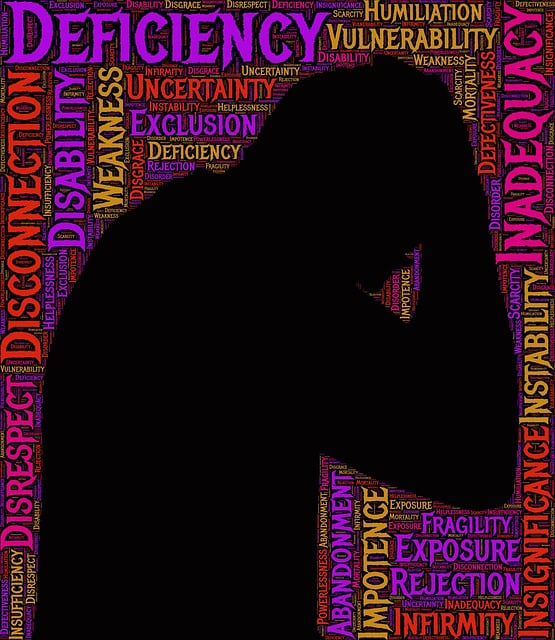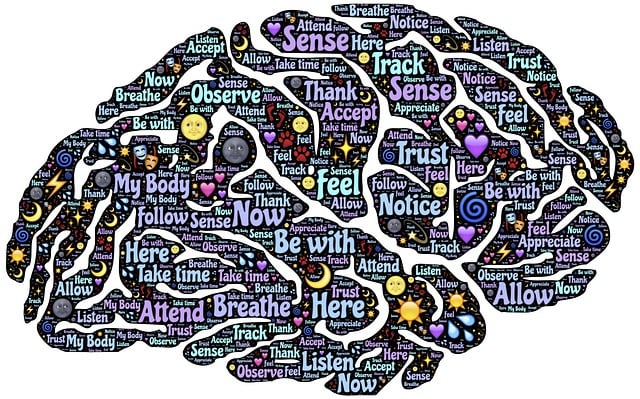Littleton Depression Therapy offers a holistic approach to managing stress for healthcare professionals, addressing its impact on mental health. They provide tailored coping strategies, mindfulness techniques like meditation, and physical activities to reduce stress hormones. Evidence-based methods such as CBT and journaling help individuals understand triggers and develop resilience. By integrating these practices into daily life and risk management planning, Littleton Depression Therapy equips people with the tools to navigate stress, improve well-being, and prevent mental health issues.
Stress management techniques are essential tools for maintaining mental health. This article explores various aspects of stress, focusing on its profound impact on our well-being. We delve into the role of Littleton Depression Therapy as an effective approach to managing stress, alongside practical daily techniques and mindfulness practices. Additionally, we discuss building resilience and coping strategies for long-term mental wellness, offering a comprehensive guide to navigating life’s challenges.
- Understanding Stress and its Impact on Mental Health
- The Role of Littleton Depression Therapy in Managing Stress
- Effective Techniques for Daily Stress Management
- Incorporating Mindfulness and Relaxation Practices
- Building Resilience and Coping Strategies for Long-term Wellbeing
Understanding Stress and its Impact on Mental Health

Stress is a natural response to challenging or threatening situations, but when it becomes chronic, it can significantly impact mental health. In today’s fast-paced world, with its demanding work schedules and constant connectivity, many individuals struggle to manage stress levels, leading to increased anxiety, depression, and even burnout. This is particularly true for healthcare providers who often face high-pressure environments and heavy workloads.
Littleton Depression Therapy emphasizes the importance of understanding these stressors and their effects on both mind and body. By learning effective burnout prevention strategies for healthcare providers, individuals can cultivate confidence boosting coping mechanisms and promote positive thinking. This proactive approach is crucial in maintaining mental well-being, preventing relapse into depression, and fostering resilience in the face of life’s challenges.
The Role of Littleton Depression Therapy in Managing Stress

Littleton Depression Therapy offers a powerful toolkit for managing stress, emphasizing the interconnectedness of mental and physical health. This therapeutic approach doesn’t just target symptoms; it aims to build inner strength by empowering individuals with coping mechanisms tailored to their unique needs. Through a combination of evidence-based techniques, clients learn to navigate stressful situations, fostering resilience and enhancing overall well-being.
The therapy’s holistic nature incorporates activities like mental wellness journaling exercises for self-reflection and tracking progress, contributing to a deeper understanding of stress triggers. Additionally, the design of mental health education programs within this framework equips individuals with practical tools to manage stress in daily life, promoting lasting positive changes.
Effective Techniques for Daily Stress Management

In today’s fast-paced world, stress has become an all too common companion. However, there are effective techniques for daily stress management that can help individuals navigate their busy lives with resilience and calmness. One powerful tool is Mindfulness Meditation, which involves focusing on the present moment without judgment. This practice has been shown to reduce stress hormones, improve emotional regulation, and enhance overall well-being. Incorporating just a few minutes of mindfulness meditation into your daily routine can significantly contribute to stress reduction.
Additionally, engaging in regular physical activity is an excellent stress management strategy. Exercise releases endorphins, often referred to as “feel-good” hormones, which can alleviate tension and improve mood. Whether it’s a brisk walk, yoga session, or any other form of movement, integrating physical activity into your schedule helps manage stress levels effectively. For those seeking more tailored support, Littleton Depression Therapy offers evidence-based approaches, such as cognitive-behavioral therapy (CBT), to help individuals develop coping mechanisms and enhance their mental health. Furthermore, participating in Public Awareness Campaigns Development can foster a supportive community, providing access to resources and promoting open conversations about stress management.
Incorporating Mindfulness and Relaxation Practices

Incorporating mindfulness and relaxation practices into daily routines can significantly contribute to stress management and overall well-being. These techniques, often taught in settings like Littleton Depression Therapy centers, empower individuals to develop a stronger sense of presence and calmness. Mindfulness encourages individuals to focus on the present moment, observing their thoughts and feelings without judgment, which is a powerful tool for mitigating stress responses.
For mental health professionals, integrating these practices into their Risk Management Planning can enhance both their personal resilience and their ability to support clients. Regular mindfulness exercises have been shown to boost confidence in managing one’s emotions and promote emotional healing processes. By adopting these techniques, professionals can create a more balanced approach to their work, reducing stress-related challenges and improving the quality of care they provide.
Building Resilience and Coping Strategies for Long-term Wellbeing

Building resilience is a key component of long-term wellbeing, offering individuals the tools to navigate life’s challenges with greater ease. Through effective stress management techniques teaching, individuals can develop coping strategies that empower them to bounce back from adversity and maintain mental health. This process involves cultivating emotional regulation skills, enabling people to respond to stressful situations in healthier ways. By learning to identify triggers, practice mindfulness, and employ positive self-talk, individuals can break free from negative thought patterns often associated with Littleton Depression Therapy.
The integration of these strategies into daily life fosters a sense of control and resilience, serving as a buffer against future stress and potential mental health concerns. This proactive approach aligns with the broader framework of Mental Health Policy Analysis and Advocacy, highlighting the importance of equipping individuals with tools to navigate their own emotional landscapes. In essence, building resilience through stress management is not just about coping; it’s about thriving in the face of life’s inevitable challenges.
Stress management is a vital tool for maintaining mental health, and techniques like Littleton Depression Therapy offer effective paths to resilience. By understanding stress triggers and adopting daily practices such as mindfulness and relaxation, individuals can significantly improve their coping strategies. Building resilience equips folks with the ability to navigate challenging situations, fostering long-term wellbeing. Incorporating these practices into daily routines empowers individuals to take control of their mental health and live more fulfilling lives.














